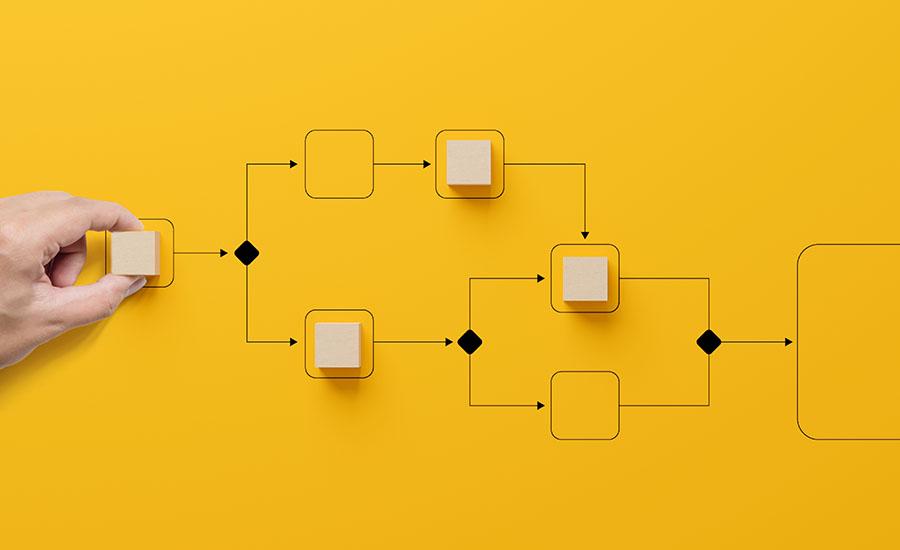Students will explore the different types of mouth parts and how their feeding needs are met. Students will 'pretend' to be insects with different mouth types and collect data on their success on
In this lesson students will learn about the 3 types of matter and go on a matter scavenger hunt. After the scavenger hunt students will make graphs to show the different types of matter that they
In this lesson students will be able to program Dash to retell the story they read. Students will be able to run their algorithm and debug as necessary. An added challenge is for students to create a
This is a two part lesson for students to have fun with robots! In this first part, encourage reading in a fun way! Students choose a book they have read and write down the story elements. They will
Engage your students in this read-aloud lesson, integrating ELA, Math, and Computer Science. With prompting and support, students will be able to ask and answer questions about key details in a text
An engaging read-aloud lesson integrating ELA & Computer Science. Students will listen to Balloons Over Broadway and be able to complete a compare & contrast diagram. Students will also complete a
The students receive a sample population of "bears" and use the colors and ratios to determine the genotypes of the captive bears and their parents.
Student will have the opportunity to build their own Vermicompost bin in this hand on lesson. This is a great opportunity to bring in a Community Expert to share their love of Urban Gardening and what
Students will use live seedlings and available information about seedling and the Sun's energy to determine the best location for the plant to thrive.
Teaching with phenomena is a great way to connect real world events with inquiry based learning in the classroom. In this lesson students will observe and investigate a phenomenon that involves the
The Mystery Box Investigation combines science concepts about properties of matter, how we use and identify matter based on its properties, and the mathematical concepts needed to calculate density
Students will have the opportunity to apply the skils of finding area of a rectangle and volume of rectangular prism when they determine the area and volume of garden beds at the school.
In this lesson, students will learn about the role of a pollinator. They will have the opportunity to practice being a bee using their proboscis, wrapped candy and cheese balls.
This lesson combines plant science with measurement and line plot graphing. Students will research plant needs through books and media to plan and conduct an experiment which tests different growing
Students are presented with a real-world problem, the newly poured delivery ramp for the cafeteria is too slick, students are tasked with suggesting a surfacing that will increase the ramp's safety
In this lesson, students will watch a video discussing how birds have different beaks depending on what they eat. Students will then have the opportunity to examine the differences in chickens and
In this activity, students will complete a Web Quest to find the diameter of the Earth, Moon, and Sun AND will observe how the Earth orbits around the Sun and how the moon rotates around the Earth by
Students will explore the role that decomposers play in the nitrogen cycle. First students will gather information through research and activities to construct a model of the nitrogen cycle. Then
In this lesson, students will read about volcanoes (using teacher chosen books and Readworks.org passages) as well as watch videos to see them in real life. They will then create their own volcano and
Students will create a scientific claim that is supported by evidence as to which car is the better deal, the Hot Wheels car or the generic car. During the four day activity, students will conduct
In this lesson, students will incorporate science and math concepts as they investigate properties of matter. They will apply mathematical concepts and formulas in a hands on activity where they
Have you ever wondered how ducks stay warm and dry while swimming in cold water? Students will create a duck and then be able to test their theory!
Students will design and build their own popsicle stick catapults, exploring principles of force, motion, and engineering. This lesson does have a Halloween theme to it, but can be modified is needed.
A Makerspace is a common space reserved for creative exploration, engineering, tinkering, inventing and purposeful play. In a Makerspace, children have opportunities to discover, assemble, problem
Featured Lesson Plans
Check out these notable lesson plans.

Zippy the Elf's Zipline Zone
In this creative engineering design lesson, students are challenged to use an inclined plane to create a safe and exciting zipline park for Zippy the Elf. This lesson reviews simple machines and has

This lesson is about exploring Arizona's state bird, the cactus wren, that lives in the desert, has special body parts and behaviors that help it survive in its harsh environment. Students will learn

In this primary Kindergarten-1st grade STEM lesson, students will learn to define algorithm, bug, and debug in reference to programming. Through engagement with a virtual simulation, students will
